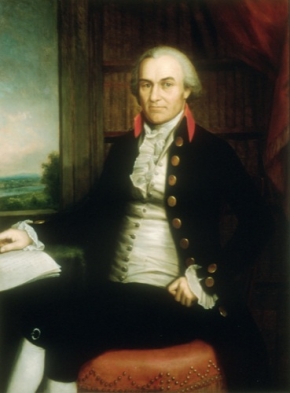You are here
Circuit Court Opinions:
Chief Justice Oliver Ellsworth, Hamilton v. Eaton (1796)

Hamilton v. Eaton, 11 F. Cas. 336 (C.C.D.N.C. 1796) (No. 5,980) [Southern Circuit]
In 1777, the state of North Carolina enacted a statute forbidding the payment of debts owed to British loyalists. This law required debtors to pay the amounts owed to commissioners authorized to receive the money on behalf of the state. The law contained a promise that debtors would be indemnified against any future claims for the money. The plaintiffs, loyalist merchants residing in North Carolina, sued to enforce a debt incurred in 1776. They based their claim on the Treaty of Paris, which recognized American independence in 1783. The treaty included a clause providing that those on both sides should encounter “no lawful impediment” to the collection of debts already incurred.
Along with U.S. District Judge John Sitgreaves, Chief Justice Ellsworth ruled that the North Carolina statute, constituting a lawful impediment to the collection of a debt, was nullified by the treaty. The treaty must control, wrote Ellsworth, both because it was more recent than the statute and because the Constitution had declared all treaties previously made to be the supreme law of the land.
Because the North Carolina statute had not operated to eliminate the debt, but rather only to prevent its enforcement, the court found the debt to be valid and ruled for the plaintiffs. Both Sitgreaves and Ellsworth noted that the state had promised to protect debtors, such as the defendant, who were forced to pay twice. “The state,” wrote Sitgreaves, “will certainly feel bound by every principle of moral obligation to reimburse, in the most ample manner, all those who have made such payments.”
Hamilton v. Eaton was an early assertion by the federal courts of the supremacy of federal over state law. The case was also in accord with the federal government’s goal in the early republic of nullifying state laws that interfered with the enforcement of debts.
